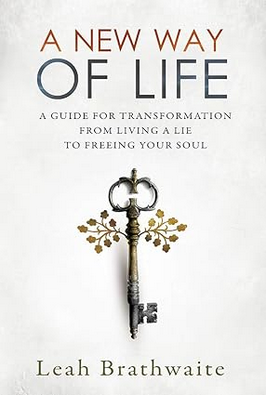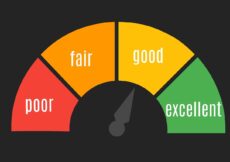France, the land of revolutions and enlightenment, still enchants the world with its iconic landmarks: the Eiffel Tower, the Arc de Triomphe, the charming Montmartre. It’s a country that once hosted legendary artists like Allen Ginsberg and William Burroughs, who stayed at the famous “Beat Hotel.” Paris just finished hosting the Olympic Games, where the homeless and refugees were quietly removed from view, and the city, under heavy police presence, temporarily returned to an artificial calm. Yet behind this postcard image lies another reality: one of growing social inequality and a generation in despair.
By Céline Baron
Céline Baron is a therapist and author of personal development books. Born in Montreuil-sous-Bois (France) in 1975, she studied art, communication, theology, and psychology in France and abroad. She is also a former journalist specializing in spirituality, wellness, and social issues.
A Society Strangled by Inequality
I was born in Paris, growing up in the Nation district. Back then, I attended selective schools, and my neighborhood, Rue des Boulets, was already sought after. Today, apartments in that area sell for outrageous prices—between 700,000 euros and a million. How can anyone afford this in a country where 2.04 million workers survive on minimum wage (1,329 euros net per month), while rents in Paris often exceed 1,200 euros?
The inflation and real estate speculation have spread across the country, affecting not just the capital but also the suburbs and rural areas. The government seems content to exploit this economic system, turning more and more citizens into “cash cows” while their quality of life steadily declines. Meanwhile, violence and social unrest, once concentrated in cities, now extend to rural areas once known for their peace.
A Sacrificed Youth, Dreams Shattered
A few years ago, I met a young woman in the electronics section of a department store. She reminded me of a young Jane Birkin—blonde, smiling, and passionate about 1960s culture. She had a BTS degree in business and IT, and her future seemed bright. But when she entered the workforce, she was hit with a harsh reality: exploited by large corporations, moving from one to another, she eventually fell into despair.
Like many, she turned to freelancing in hopes of a better life, only to be crushed by the weight of taxes and fees, particularly the URSSAF, which takes about 23% of freelance income. With little initial earnings, her situation became untenable. I know this struggle well, having been a freelancer since 1999. Despite my experience, even at 50, I sometimes just scrape by. This young woman, overwhelmed by her circumstances, eventually took her own life at the age of 22.
She is not an isolated case. According to the National Suicide Observatory, suicides among those under 25 increased by 40% between 2010 and 2020. The French system tells young people that education and hard work will save them, but in reality, only certain professions—like medicine or engineering—offer stability.
The Employment Battlefield
France presents a paradox: despite a slight decrease in unemployment, the labor market remains inaccessible to many young people. In 2021, over 700,000 young people were unemployed, despite being highly qualified. In my practice, I meet numerous graduates, even those with a Bac+6, working for minimum wage. These talented individuals are often more knowledgeable than their employers, yet they are treated as cheap labor.
Unpaid internships remain another scandal. BTS students, for example, must complete 16 weeks of internships over two years, covering their transportation and meals, without any compensation. Many, unable to afford these costs, drop out of their studies altogether.
Barriers to Knowledge
Degrees, once seen as passports to employment, have lost much of their value. Access to specialized training has become increasingly difficult. I myself, despite 25 years of high-level experience in communication, was denied admission to a university program on Communication and Autism. With 3,000 applicants for only 13 spots, the so-called “free and accessible” French university system has become elitist.
As a result, I turned to online courses at Harvard, where I was accepted without issue. This brain drain is a reality: students and professionals are taking their talents and money abroad because French institutions are making it nearly impossible for them to succeed. Despite political promises to fight violence with education, the government is starving the education sector.
Social and Moral Degradation
French society is sinking into a state of moral and social degradation, marked by growing violence, incivility, and a decline in quality of life. Schools are dull and uninspiring, incapable of sparking joy in learning. Even small initiatives to brighten children’s lives, like the Olympic mascot that greeted them at the school gates, lasted only two days. After that, the gloom returned.
Teenagers are more disconnected from reality than ever, glued to their screens and developing issues like social anxiety and even strabismus. A study by INSERM showed that screen time among 11- to 14-year-olds increased by 50% between 2016 and 2021, replacing outdoor and creative activities.
What if We Told the Truth to Our Youth?
Why not be honest with our teenagers? Tell them that life isn’t just about earning diplomas and working monotonous jobs for decades. In my art therapy sessions, 8 out of 10 participants have never touched clay before. Yet, these creative moments bring them immense joy, far removed from the competitive world of school and technology. Many young people rediscover a sense of peace in these activities, realizing that there’s more to life than grades or screens.
What Future for France?
Our country is in crisis. The violence, the rising precarity, and the erosion of the educational system have left many feeling hopeless. Ironically, while foreigners still view France as a land of opportunity, many French people dream of leaving.
It’s time for France to rethink its priorities, to invest in its people and offer real hope for the future. Do we need to wait for a rebellion to shake the system awake? France has survived wars and crises before, but this time, the danger is internal. We risk losing an entire generation to despair if we do not act soon.
Maybe the solution lies in turning away from materialism, embracing a simpler, more meaningful life. One that values health, knowledge, and laughter above all. Even if that means laughing through the pain—at least we’re still laughing.




































